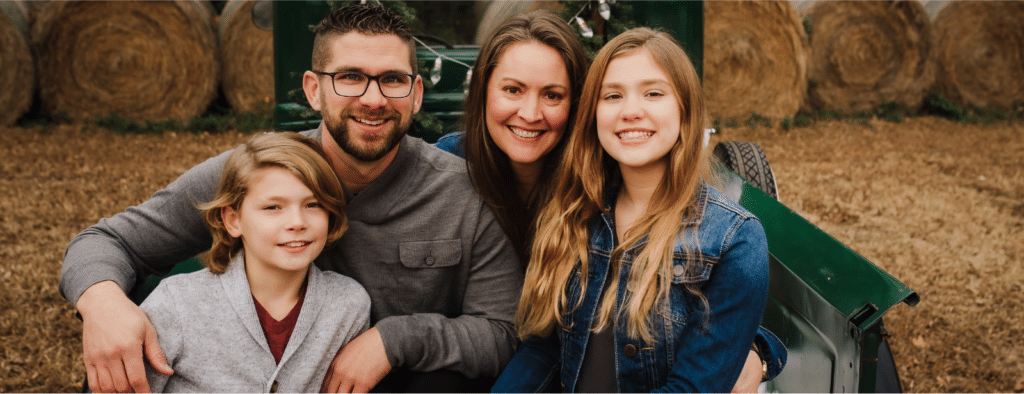Last week we started a conversation with Sarah and Pastor Micah Greiner. We explored how each of them has led in the uncertain times of a pandemic that shuttered their church and school. Today I’d like to pull the lens out a bit beyond COVID and look at the challenges almost all of our churches are facing in the U.S. today.
Many leaders have felt the pressure to restore all of the programs to the way they used to be and to sacrifice the very mission of their churches. What do you say to elder boards and to church councils?
Micah: It’s never too late to have those hard conversations. Most leaders have a sense that the programs that used to work aren’t working, but they have no idea there’s a different way. They’ve been discipled in the old programmatic way. They deeply grieve what they know is being left behind. They know they’re in a perilous position. They want to preserve the legacy. But they have no vision. They need to ask their leader to help them discover the future vision for their ministry.
Sarah: One of the hardest things any of us have to do as leaders is end something. You will disappoint people. Most of us want people to approve of us, so it’s doubly difficult.
Let’s step away from the church for a moment. Early on, the two of you made a commitment in your neighborhood.
Micah: Back in 2007 when we moved into our house, we had a deep longing for belonging in community. We didn’t know any of the things we’ve learned in D2MC since that time. It was just important to us. Now, our neighbors next to us are some of our closest friends.
Micah, I can picture a lot of pastors saying, “I just don’t have time for neighbors.” I can see church boards not valuing the time their pastor might spend investing in relationships outside the church.
Micah: For most pastors, your ministry so envelops your life. Completely! It becomes your identity! You don’t have any interaction with unbelieving people at all. It’s a high value for Sarah and me to spend unhurried time with our neighbors and friends. They’ll come to a bonfire in our driveway but would not accept an invitation to church. I could preach the best sermon ever and they would never hear it. The best chance for them to know Jesus is for us to change our lives so we can be close to them. We see spiritual connections happening. Praying is the easiest tool to open spiritual windows for us.
So, let me ask. What‘s wrong with them that they wouldn’t come to your church?
Micah: Most have been burned by a bad church experience. You wouldn’t believe the hurt and damage from the church that they carry around. One couple in our neighborhood is living together. She started to open up around a bonfire on Easter Saturday. Some salty language. Bad experience with a fundamentalist, misogynistic, patriarchal church leader. She actually would go back to church if she knew she had a safe place to go.
Sarah: It’s a long, slow process to recover from a bad experience. They don’t know what they don’t know. They have no idea that there’s Good News to be had. That Jesus comes to us with grace in the body and the blood. Oftentimes, they’re just not in touch with that void.
For me it started with feeling stretched. Church. Neighborhood. Family. But we just started to be intentional. When our neighbors become friends and some become family, there’s no duty or a job. It’s just who we are. We benefit from them.
Tell me more.
Sarah: The more you hangout with people, the more you get exposed to all of the brokenness. Drug use. Alcohol. Abuse. Sexual sin. Marital unfaithfulness. Same sex attraction. Same things as in the church, but it just gets covered up in the church. They are still children of God. Made by Him. God still desires to draw them closer to Himself. They will quickly sniff out if you’re trying to make them a project or make them a church-going Christian person. I think Eric Swanson said it well: You can have that as an ultimate motive…to see them in relationship with Christ…just not an ulterior motive.
When the sin surfaces, you can’t overreact with judgement. It’s messy. In time, all kinds of things eventually surface.
You guys are an easy interview. Do you see other people in the church starting to do the same?
Sarah: We’re beginning to focus all of our energies around discipling relationships. What if every girl and boy and man and woman accepted the invitation into the Mission of God? Invested in intentional relationships? Saw their primary role to be on mission with Jesus? In the workplace? At school? The impact of our church in this community would be profound!
Micah: Karen has been a long time, gifted leader here. She was one of the first early adopters. Her husband quickly joined her. We’ve heard you and Gail say that the easiest way to get to know your neighbors is going walking with a baby or a dog. People stop. They talk. Relationships start.
They had his elderly mother living with them. In a wheelchair. They’d take her out each day for fresh air. A walk around the neighborhood. Except now they became more intentional. They realized, like most of us when we started, that they didn’t know their neighbors. Conversations and pauses became more intentional. It might lead to sharing Good News. Or, they might simply pray for the neighbors as they walked by. Pray about the little they knew. OR, pray for their well being.
Sarah: It’s like PLI teaches: You discover People of Peace. Someone you just connect with. There’s synergy. You enjoy being around them. They listen to you. Serve you. They’re open to you. And open to the Jesus within you.
Next week I’ll close out the conversation with Micah and Sarah and get a better idea of what they meant by “The barn was already on fire when COVID hit.” Obviously, this piece of the conversation gave us a window on how the two of them are leaning into the larger uncertainty of a culture that no longer (with a few exceptions) pushes people toward our churches. We can sit and wait for that to change, or leaders like you can link arms together into an exciting, seemingly uncertain time.
- Share this blog and get your whole leadership team in this conversation.
- Contact Raechel if you want to explore how PLI might walk forward with you in this journey.
PLI seeks to be used by God to accelerate a movement of the Gospel by training a global family of 30,000 leaders and churches. If you desire to see a brighter future for the church and you are blessed by PLI’s training and investing in leaders, please join us in making a monthly gift to advance this work.



